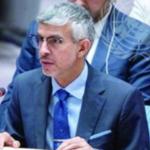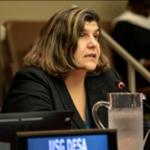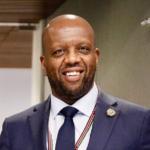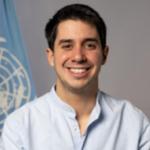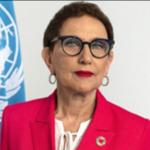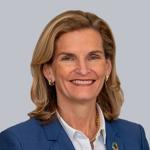The world is not on track to achieve most of the Sustainable Development Goals (SDGs) by 2030, amidst the significant economic, social and environmental challenges it faces.
The interlinked crises in recent years exposed our vulnerabilities and underscored the need for a fundamental shift to put the world back on track to achieve the 2030 Agenda. With only 6 years to 2030, bold and transformative actions are urgently needed to facilitate and expedite reaching the SDGs.
The Economic and Social Council (ECOSOC) has been a crucial and committed body to advance a sustainable and resilient path to the 2030 Agenda. Through its forums, segments and special meetings, ECOSOC continues to serve as an inclusive and action-oriented platform for integrated policy making and dialogue in finding multilateral solutions to pressing global challenges. The Council is also central to achieving a multilateralism that is effective, just, representative and networked, to ensure a coordinated response and to, facilitate contributions by all actors in achieving the 2030 Agenda.
The ECOSOC High-level segment signifies the culmination of the Council’s annual cycle of work, bringing together its key policy dialogue and guidance functions as well as serving as an integral venue for the Council’s work to promote knowledge-sharing and regional and international cooperation.
The morning session of the ECOSOC High-level segment will aim to better articulate and strengthen the role of ECOSOC and its subsidiary machinery in facilitating and expediting the achievement of the SDGs, catalyze a coordinated global response to SDG implementation in the follow-up to the 2023 SDG Summit Political Declaration, emphasizing inclusivity, accountability, and operational effectiveness, as well as promote a sustainable and resilient path to the 2030 Agenda through inclusive and effective multilateral actions and solidarity while engaging the contributions of different stakeholders.
Proposed guiding questions:
- How can the multilateral system better support the commitments emanating from the 2023 SDG Summit?
- How can the role of ECOSOC be further boosted toward strengthening informed decision-making and give fresh impetus to accelerating the implementation of the 2030 Agenda?
- How can the Council and its subsidiary machinery be fully utilized to advance the effective, efficient and impactful implementation of the agreements expected to be reached at the Summit of the Future?
- What actions are needed to achieve the vision of a fairer and more inclusive global governance, considering discussions on financing for sustainable development and preparations for the Summit of the Future?
- What concrete recommendations could be advanced to facilitate the achievement of a more effective, inclusive and ambitious multilateralism?
- How can the meaningful engagement of different stakeholders facilitate achievement of the SDGs?
- How can the Council strengthen its policy dialogue, knowledge-sharing, and regional and international cooperation?
Chair:
- H.E. Ms. Paula Narváez, President of the Economic and Social Council
Interactive discussion
Moderator:
- Ms. Redi Tlhabi, broadcaster, author, South Africa
Speakers:
- H.E. Ms. Lachezara Stoeva, Permanent Representative of Bulgaria to the United Nations, and former President of ECOSOC
- H.E. Mr. Abdulaziz Alwasil, Permanent Representative of Saudi Arabia to the United Nations, and Chair of the 69th session of the Commission on the Status of Women
- Ms. Rebeca Grynspan, Secretary-General of the United Nations Conference on Trade and Development (UNCTAD)
- Ms. Doreen Bogdan-Martin, Secretary-General of the International Telecommunication Union (ITU)
- Mr. Felipe Paullier, Assistant Secretary-General for Youth Affairs
- Ms. Elizabeth Cousens, United Nations Foundation’s President and Chief Executive Officer
- Mr. Martin Kimani, Executive Director of the Center on International Cooperation, New York University
Interventions by ministers and other participants (up to 2-3 minutes each)
 Welcome to the United Nations
Welcome to the United Nations

